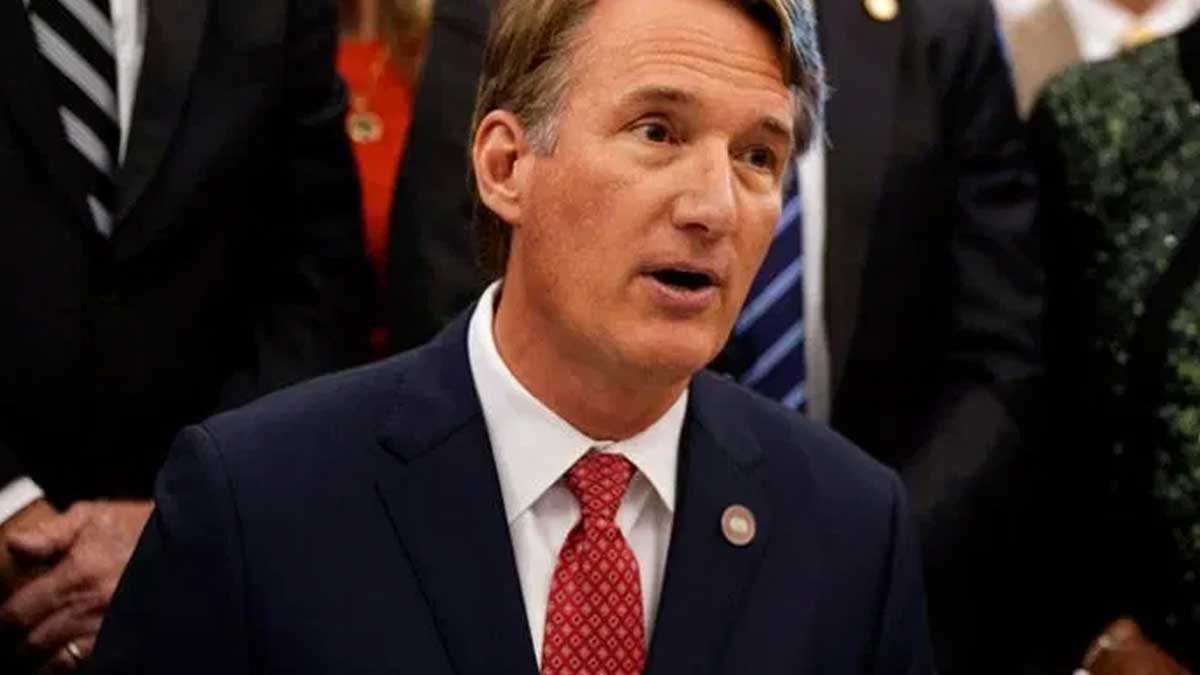- Home
- Billionaires
- Investing Newsletters
- 193CC 1000
- Article Layout 2
- Article Layout 3
- Article Layout 4
- Article Layout 5
- Article Layout 6
- Article Layout 7
- Article Layout 8
- Article Layout 9
- Article Layout 10
- Article Layout 11
- Article Layout 12
- Article Layout 13
- Article Layout 14
- Article Sidebar
- Post Format
- pages
- Archive Layouts
- Post Gallery
- Post Video Background
- Post Review
- Sponsored Post
- Leadership
- Business
- Money
- Small Business
- Innovation
- Shop
Recent Posts
Virginia Introduces New Rules to Limit Cellphones in Classrooms

Governor Glenn Youngkin of Virginia has recently issued an executive order urging school districts to establish their own regulations on cellphone use in classrooms. This move reflects a broader national trend of limiting student phone usage amid rising mental health concerns associated with screen time. In the executive order, Youngkin directs the Virginia Department of Education to provide guidance for schools to implement policies aimed at creating a “phone-free education” environment. While the directive stops short of an outright ban on cellphones in classrooms, it seeks to restrict the amount of time students spend on their phones without parental supervision. This initiative is set to be rolled out starting January 1, 2025.
Youngkin’s decision is driven by mounting evidence linking cellphone and social media use to detrimental effects on education and mental health. He emphasized the growing need for such restrictions in light of studies indicating significant impacts on students’ well-being. This policy aligns Virginia with a wave of states adopting similar measures to curb cellphone use in educational settings.
Virginia is not alone in this movement. Last year, Florida became the first state to pass legislation banning cellphone use during class, including restrictions on accessing social media through school Wi-Fi. Indiana followed suit in April with a ban on all wireless devices, encompassing cellphones, tablets, laptops, and gaming devices, during instructional time. Minnesota also enacted restrictions in April, requiring its school districts to implement limits on cellphone use by the 2025-2026 academic year. Similarly, Ohio Governor Mike DeWine signed a bill in May mandating that school districts formulate policies on cellphone use, with these regulations set to take effect by July 2025.
California is also taking steps towards tighter restrictions. Governor Gavin Newsom recently advocated for stricter controls on phone usage in schools, asserting that students should focus on their studies rather than their screens. Several districts in California had already imposed cellphone bans following restrictions approved in 2019. Other states have introduced legislation or are considering similar measures. Recent proposals include those from Oklahoma, Washington, Kansas, Vermont, Connecticut, Maryland, Arizona, and South Carolina. Utah Governor Spencer Cox has expressed support for a statewide ban on classroom phones, while New York Governor Kathy Hochul is expected to propose restrictions in 2025.
The push for cellphone restrictions comes as a response to increasing concerns over the negative impacts of social media and phone use on students. According to the National Center for Education Statistics, 77% of U.S. schools reported restricting cellphone use outside of academic settings as of the 2021-2022 school year. A study by Common Sense Media highlights that approximately 97% of teenagers use their phones during the school day, underscoring the prevalence of this issue.
The discourse around cellphone bans has intensified with studies revealing the adverse effects of social media on youth. Research from the Pew Research Center in April showed that 72% of high school teachers and 33% of middle school teachers consider cellphone distractions a major issue in the classroom. Despite these concerns, statewide bans face resistance from parents and educators. Parents argue that phones are essential for emergency communication, while some school officials worry about the practicality of enforcing such restrictions. In response to these concerns, Surgeon General Vivek Murthy recently advocated for a warning label on social media platforms, highlighting the significant mental health risks associated with their use. In a New York Times op-ed, Murthy underscored the need for increased awareness about the potential harm social media can inflict on adolescents, citing evidence of profound risks to mental health.
As more states adopt and refine policies on cellphone use in schools, the debate over balancing technology use with educational priorities continues. The growing trend towards restrictions reflects a broader recognition of the need to address the impact of digital devices on students’ academic performance and mental health. As Virginia and other states implement these changes, the effectiveness and reception of such policies will likely shape future discussions on managing technology in educational environments.
Recent Posts
Categories
- 193cc Digital Assets2
- 5G1
- Aerospace & Defense46
- AI37
- Arts3
- Banking & Insurance11
- Big Data3
- Billionaires449
- Boats & Planes1
- Business328
- Careers13
- Cars & Bikes76
- CEO Network1
- CFO Network17
- CHRO Network1
- CIO Network1
- Cloud10
- CMO Network18
- Commercial Real Estate7
- Consultant1
- Consumer Tech180
- CxO1
- Cybersecurity68
- Dining1
- Diversity, Equity & Inclusion4
- Education7
- Energy8
- Enterprise Tech29
- Events11
- Fintech1
- Food & Drink2
- Franchises1
- Freelance1
- Future Of Work2
- Games141
- GIG1
- Healthcare78
- Hollywood & Entertainment186
- Houses1
- Innovation42
- Investing2
- Investing Newsletters4
- Leadership65
- Lifestyle11
- Manufacturing1
- Markets20
- Media193
- Mobile phone1
- Money13
- Personal Finance2
- Policy567
- Real Estate1
- Research6
- Retail1
- Retirement1
- Small Business1
- SportsMoney33
- Style & Beauty1
- Success Income1
- Taxes2
- Travel10
- Uncategorized8
- Vices1
- Watches & Jewelry2
- world's billionaires418
Related Articles
Trump Moves $4B Stake in Truth Social Parent, Stock Drops 6%
Donald Trump recently transferred his 57% stake in Trump Media & Technology...
By 193cc Agency CouncilDecember 20, 2024House Rejects Trump-Backed Funding Bill, Shutdown Looms
The U.S. House of Representatives rejected a new government funding bill on...
By 193cc Agency CouncilDecember 20, 2024Trump Named Time’s Person of the Year for Second Time
On Thursday, Time magazine honored Donald Trump as its “Person of the...
By 193cc Agency CouncilDecember 12, 2024Meta Donates $1 Million to Trump’s Inaugural Fund
Meta, the parent company of Facebook and Instagram, has confirmed a $1...
By 193cc Agency CouncilDecember 12, 2024















Leave a comment